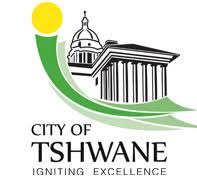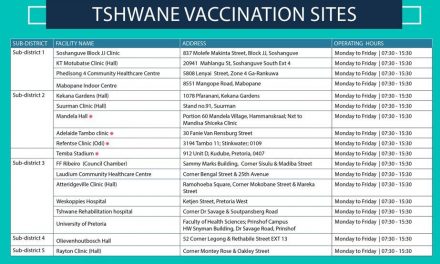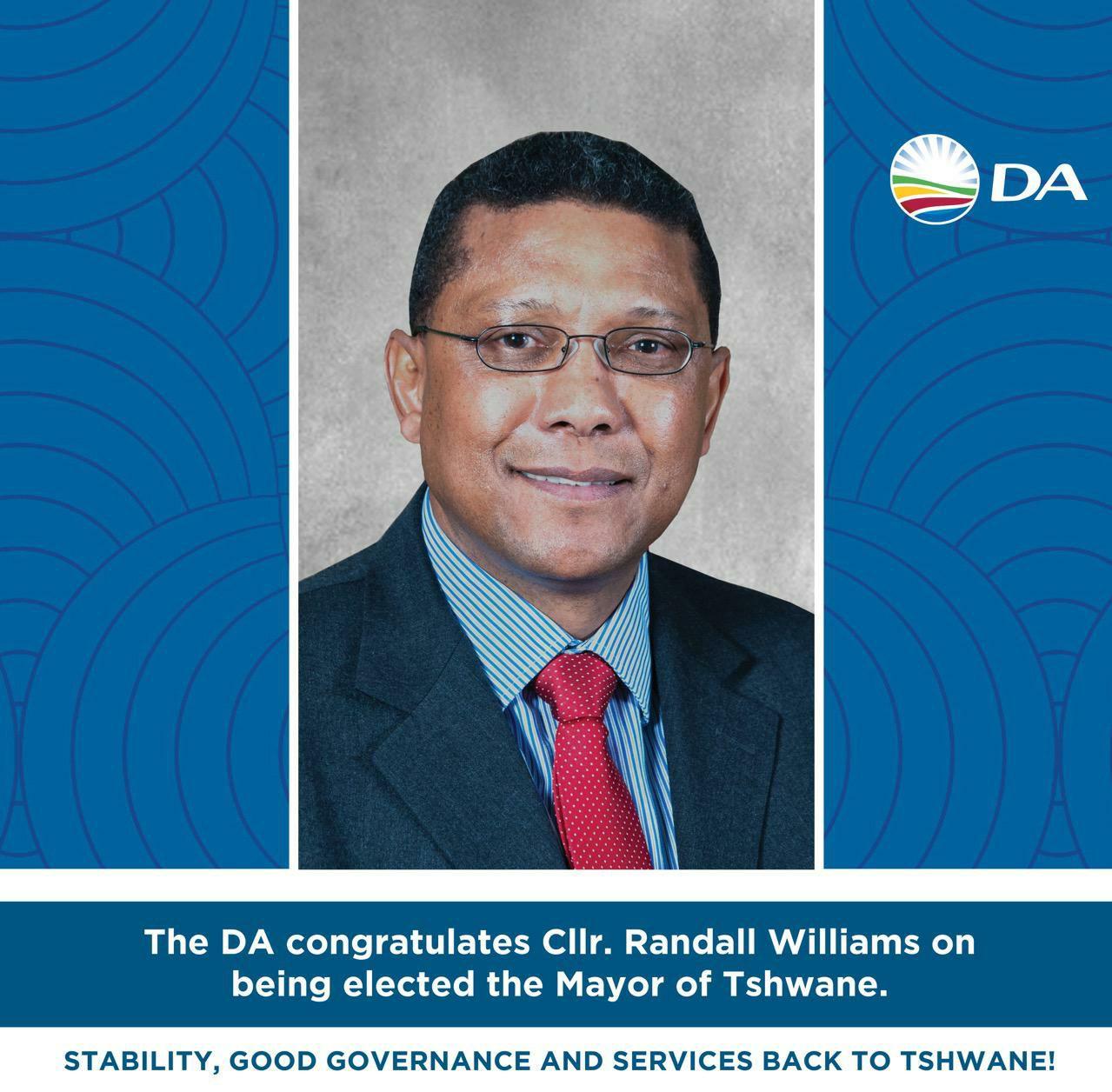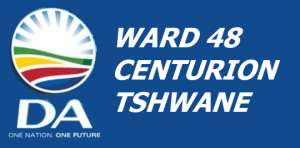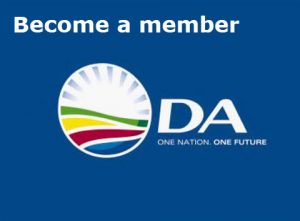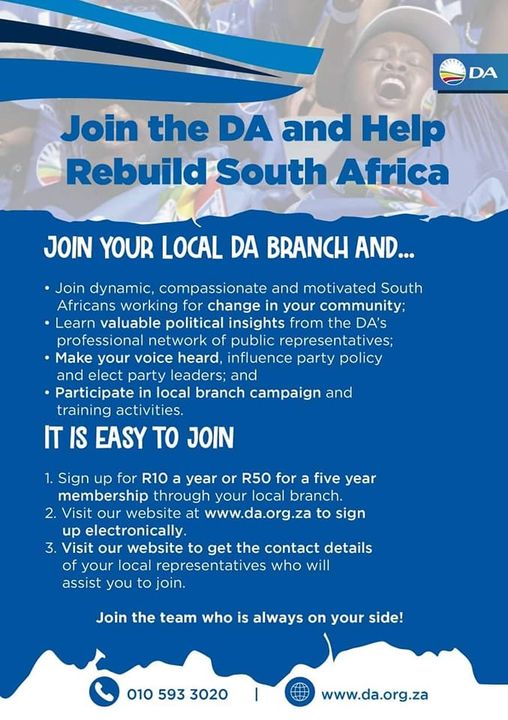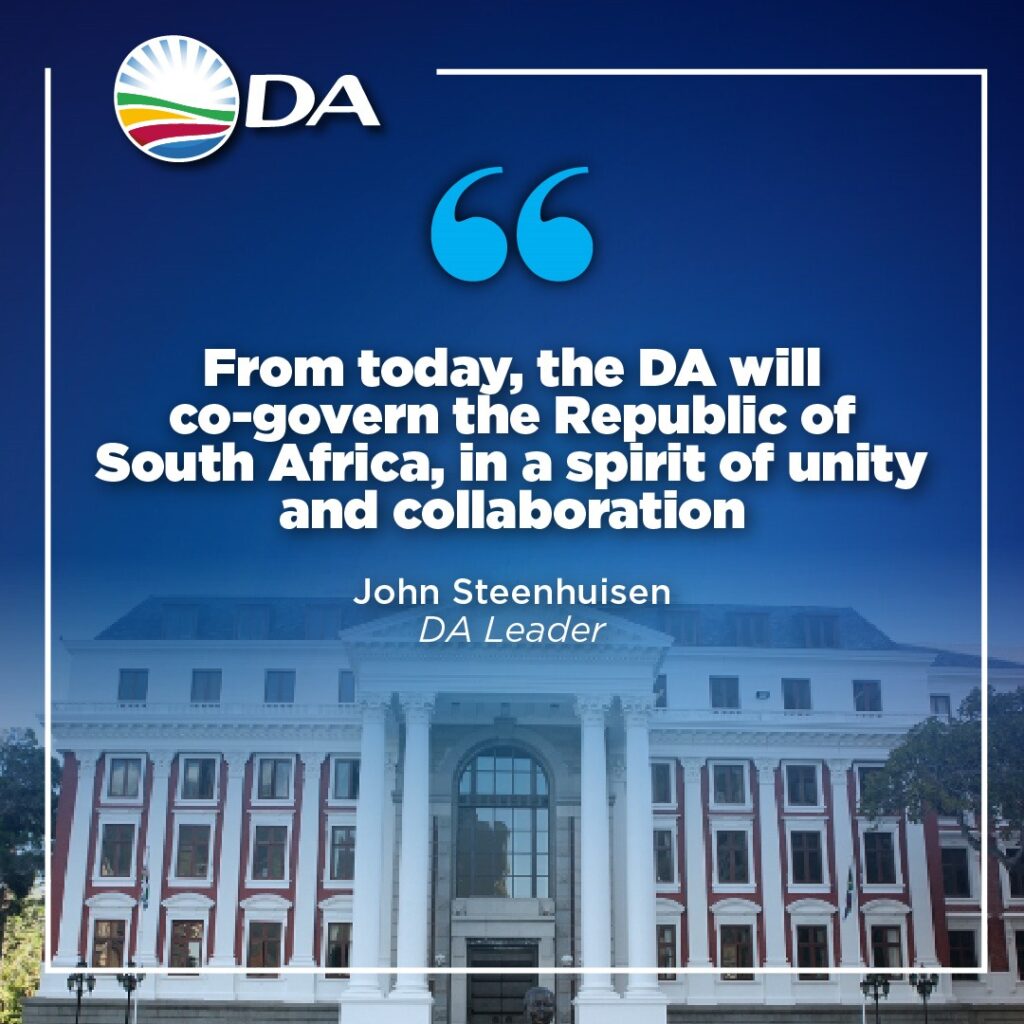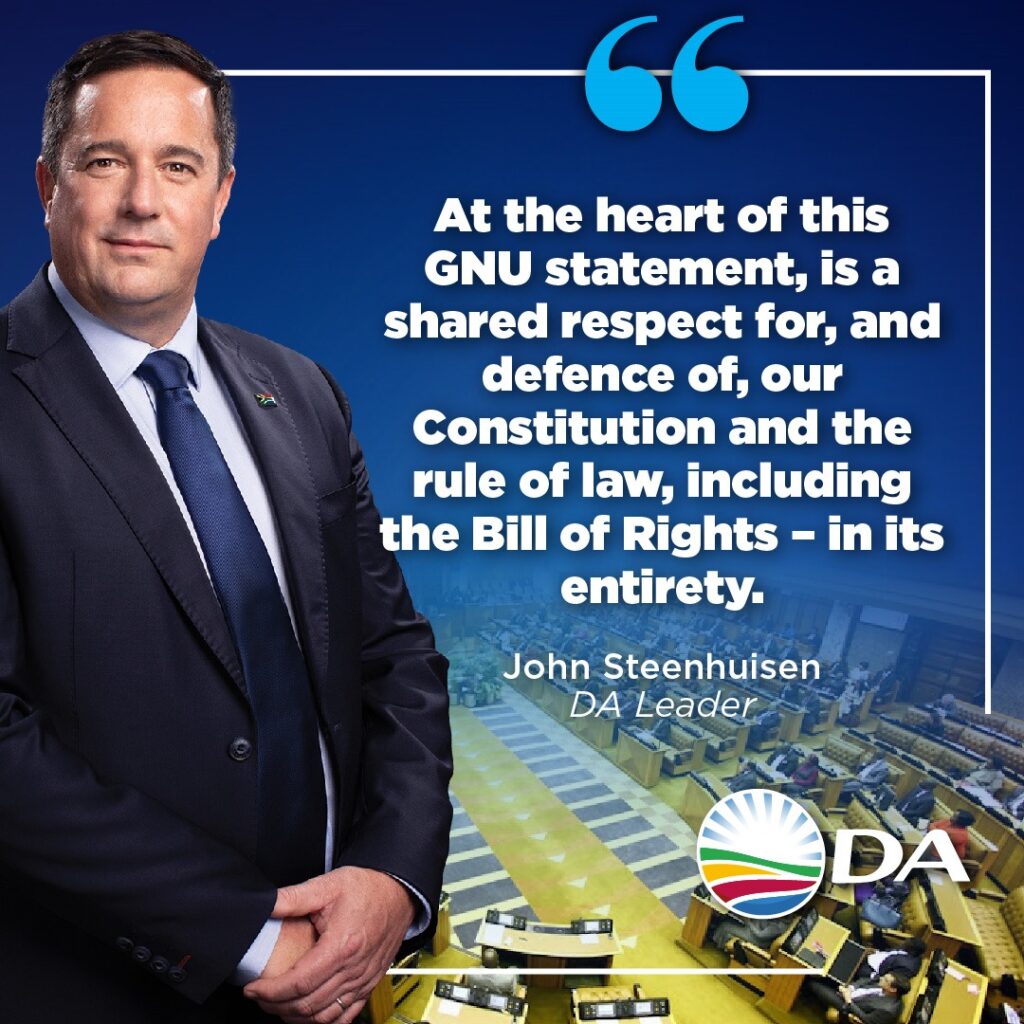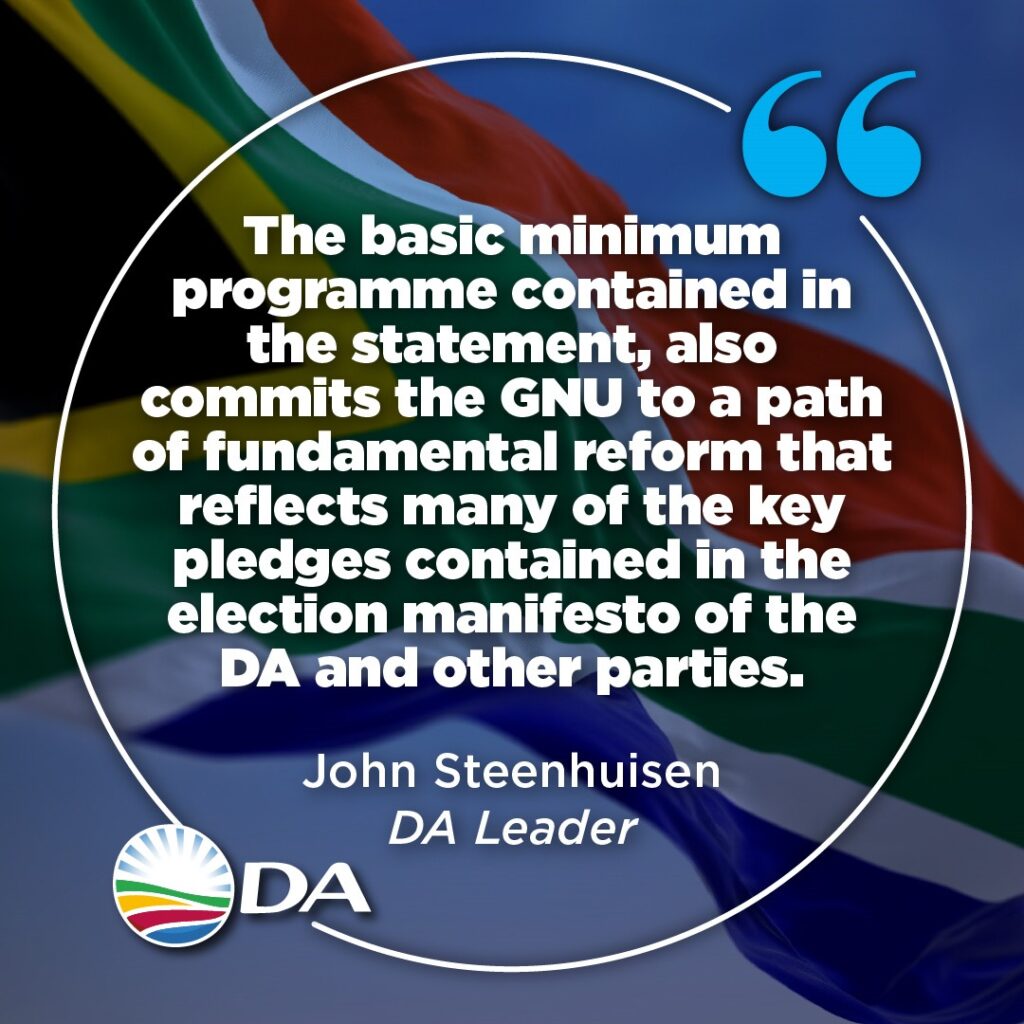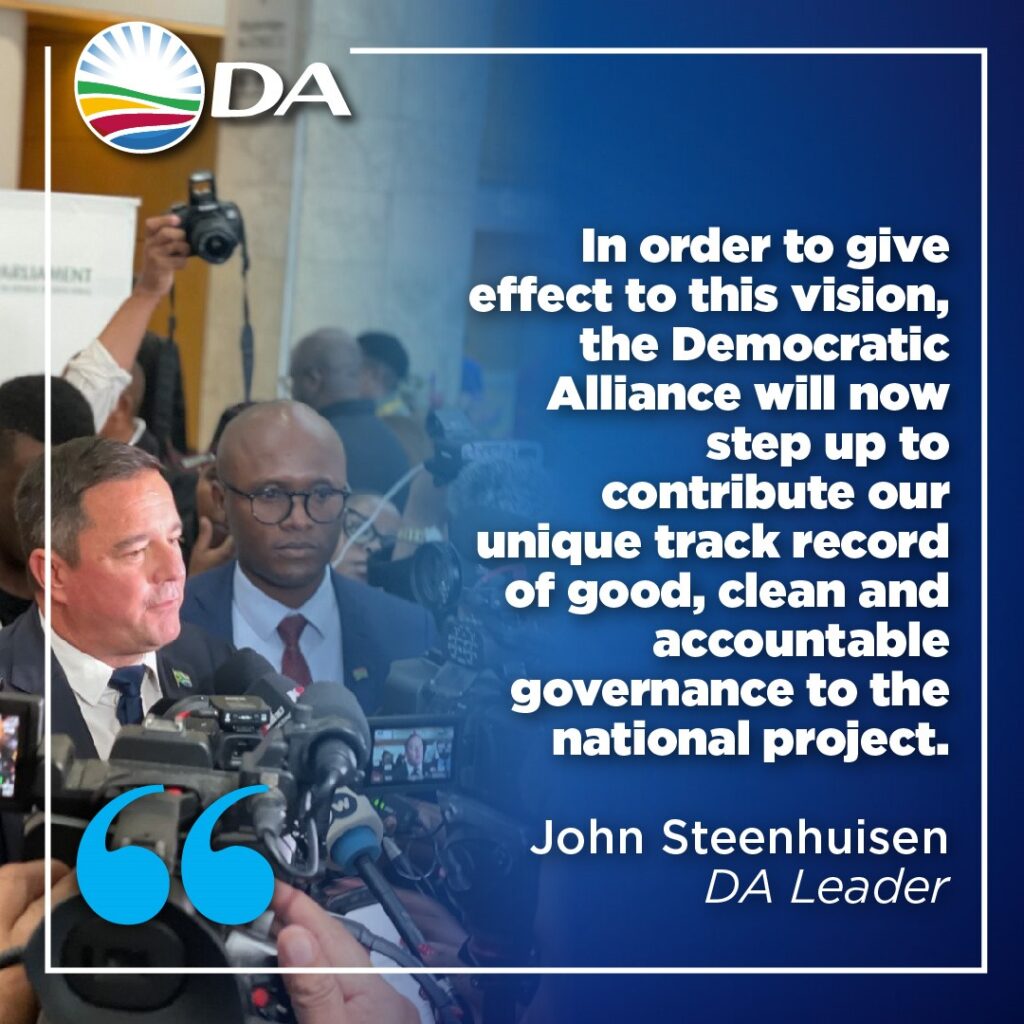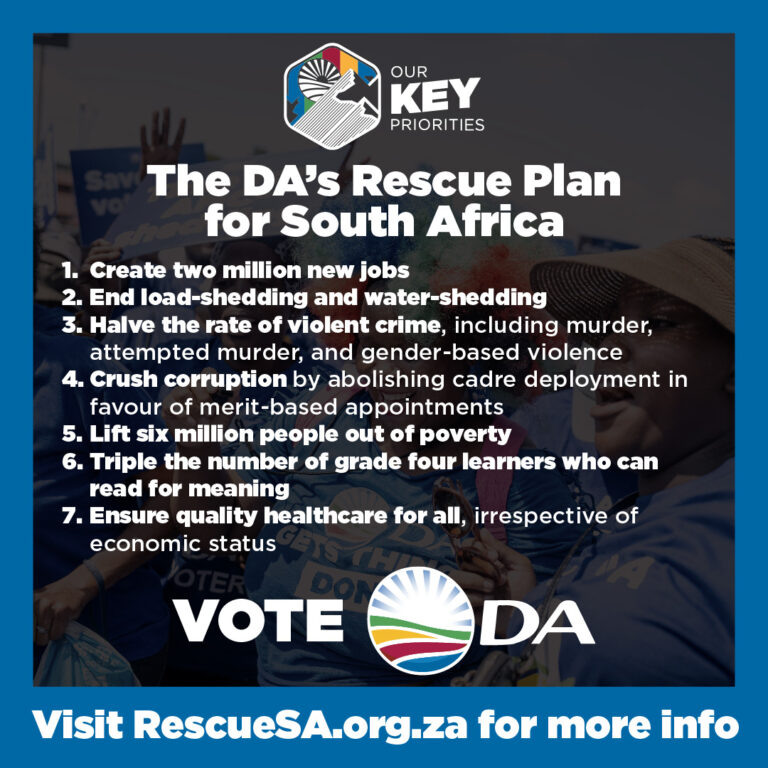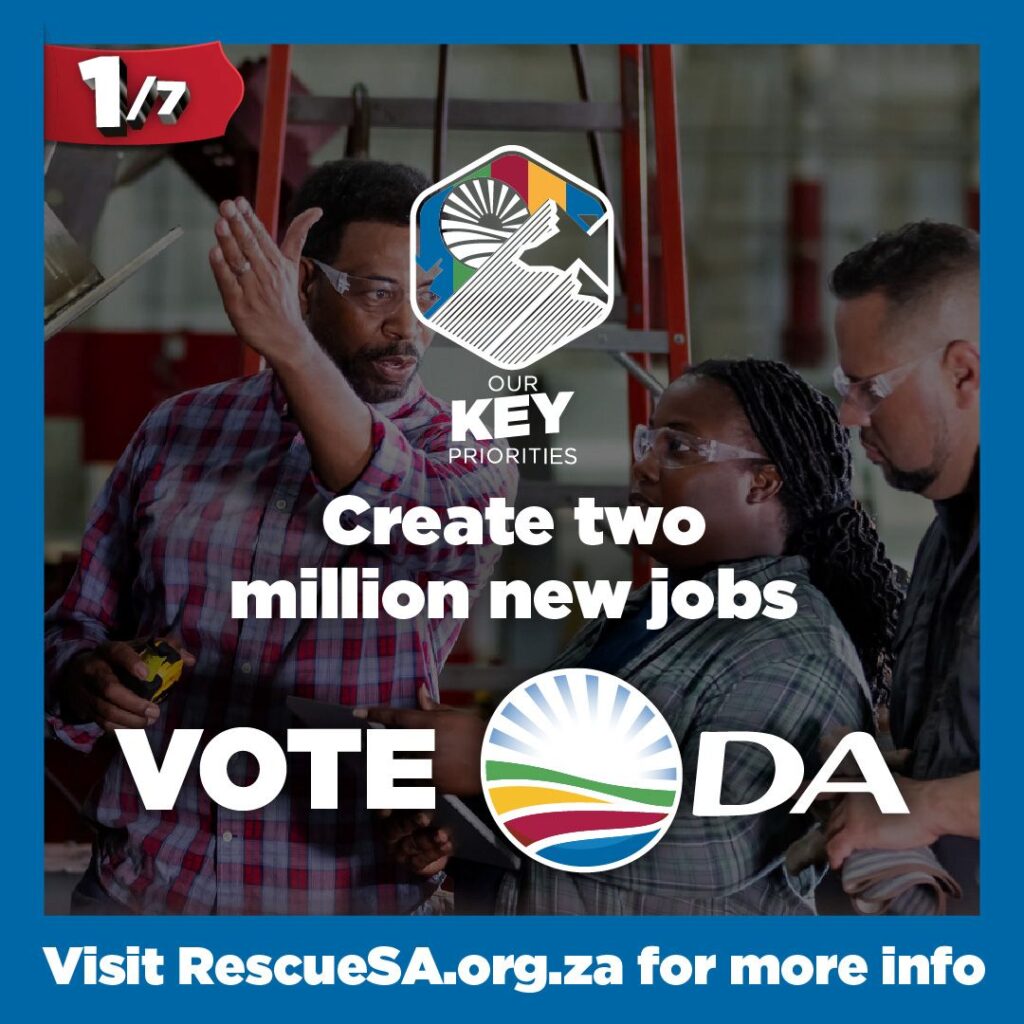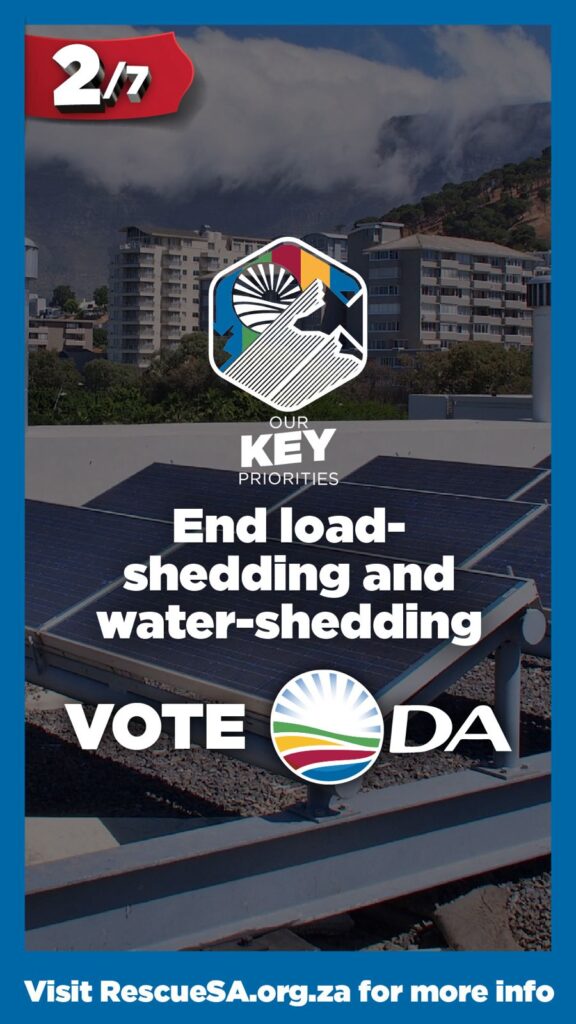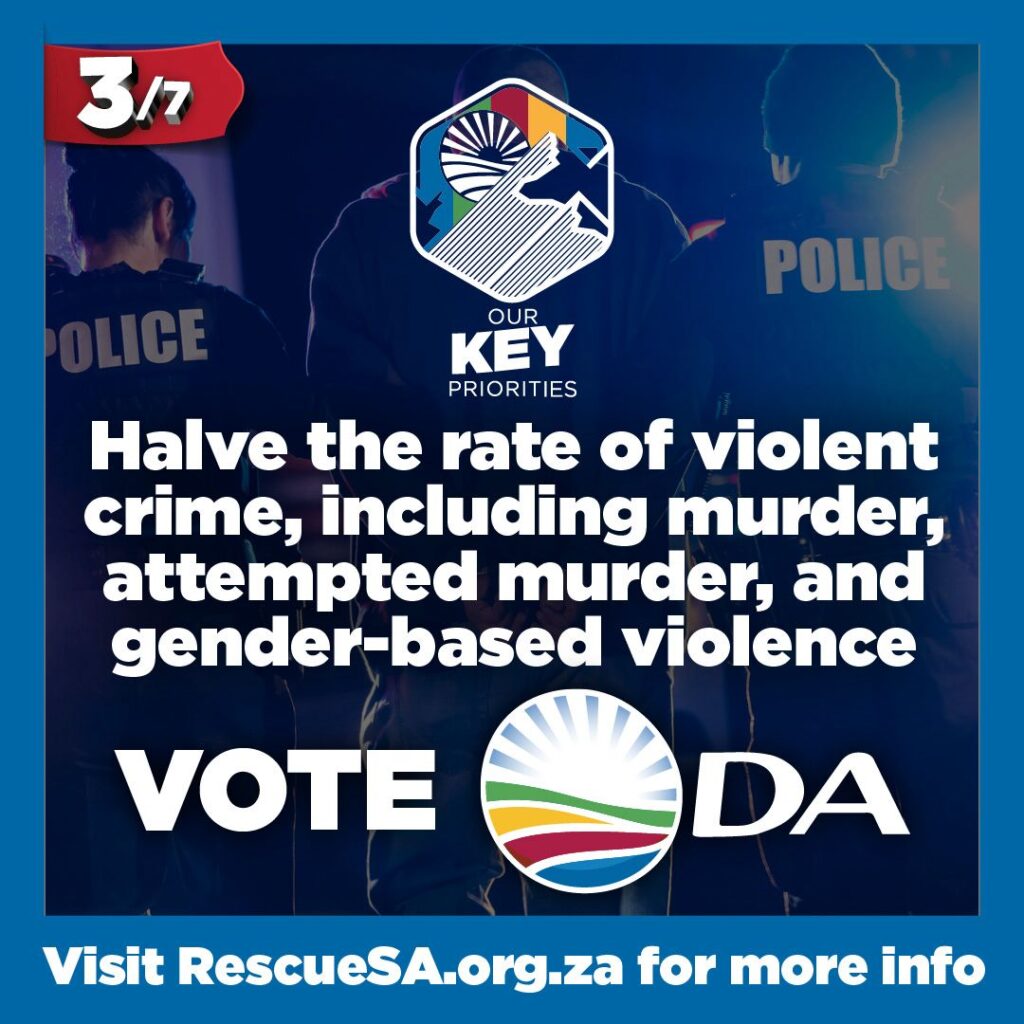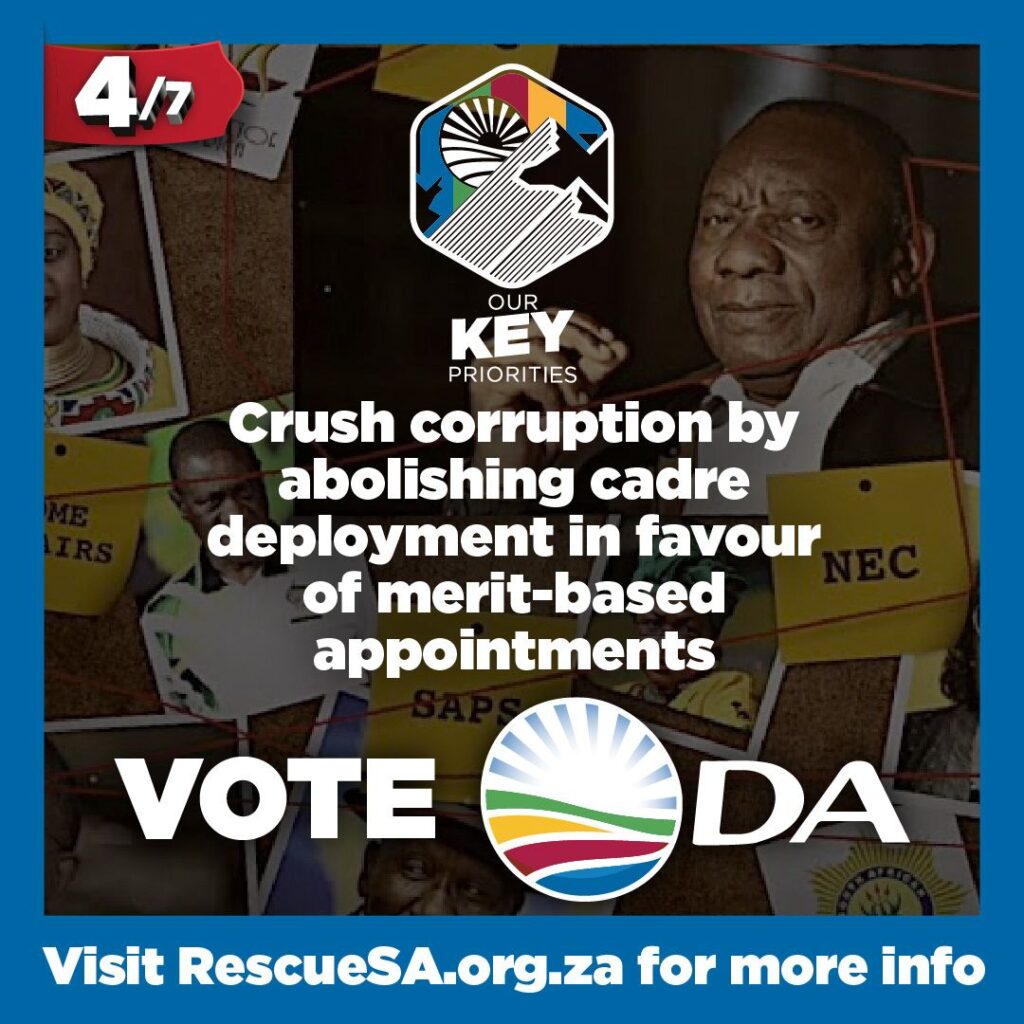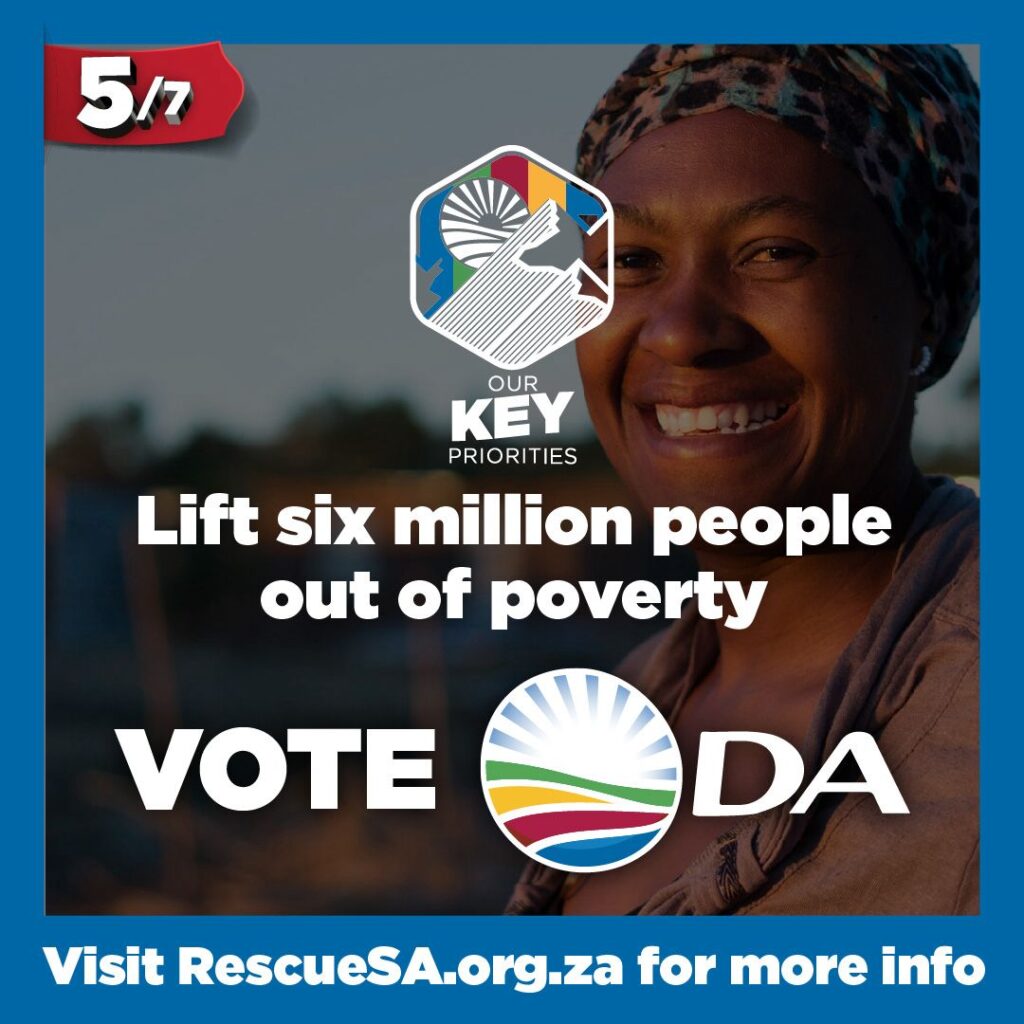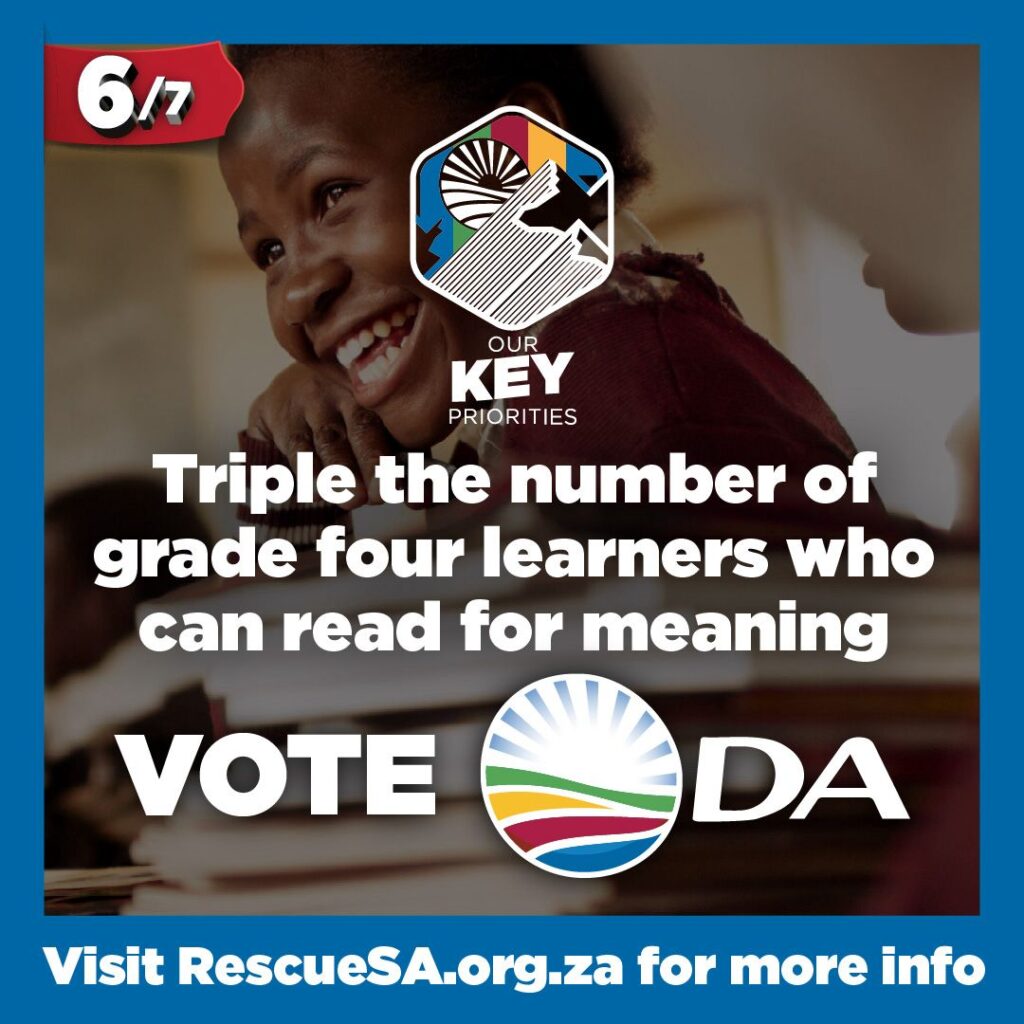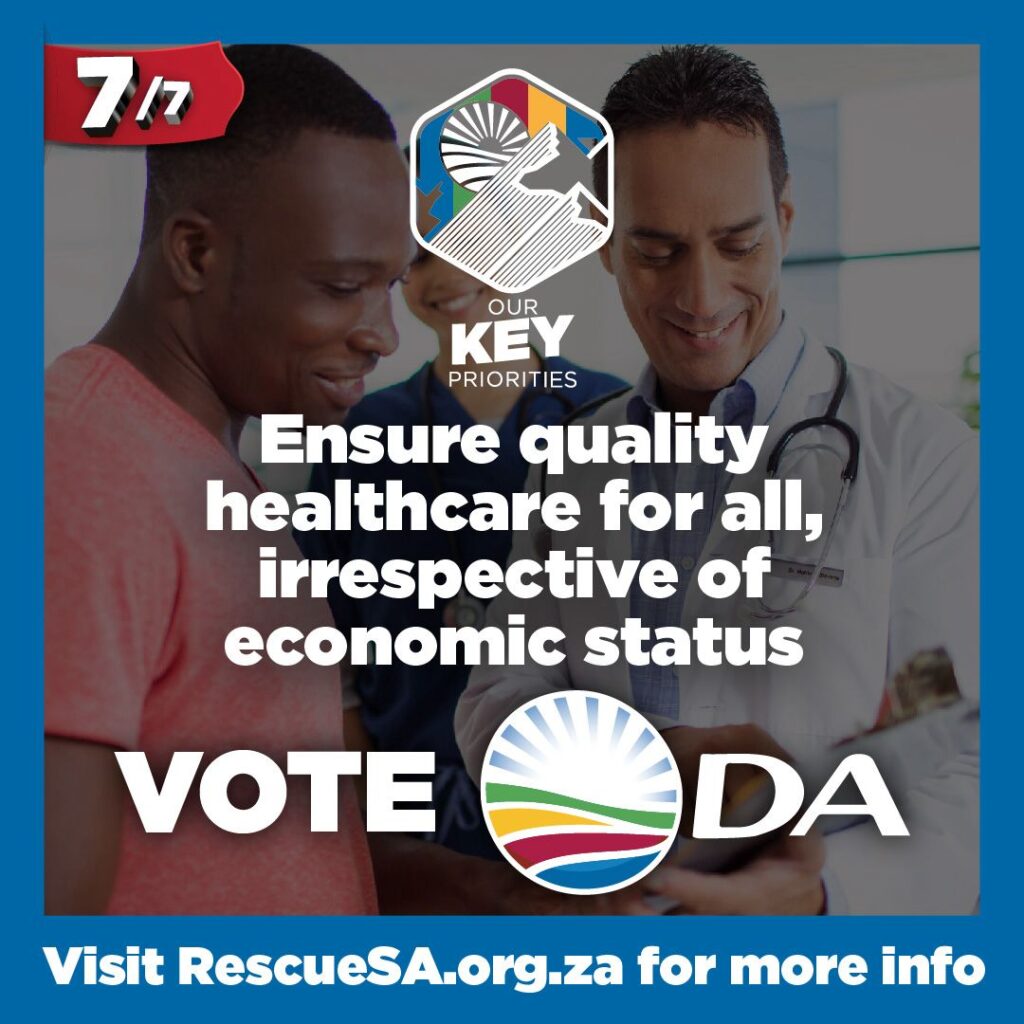Office of the Executive Mayor
CITY OF TSHWANE
STATE OF THE CAPITAL
ADDRESS 2019
THEME: Service delivery is
the ONLY priority
Madam Speaker;
Leader of Council Business; Chief Whip of Council;
Members of the Mayoral Committee; Fellow Councillors;
Traditional Leaders;
Your Excellencies, Ambassadors and High Commissioners; Leaders of the Business Community;
Distinguished Guests; Comrades and Friends; Members of the Media;
My fellow yoke bearers, the City Manager and ALL the workers of the City of Tshwane; and most importantly – our VIPs, the resilient people of Tshwane:
Thobela!
Today we were awoken by sporadic protests in the City. I understand the plight of the people and frustrations with service delivery. However, acts of criminality will not be tolerated. Let us engage.
Madam speaker, when I say “I am Tshwane” it is not out of this brilliant campaign that is currently run by the city’s marketing and communications team, I indeed am Tshwane. I was born and bred at Ten Morgan Street, Winterveldt, Sandriver ke Outhi yako Sgandaf!. I studied at the University of Pretoria where my political consciousness was sharpened.
I have previously cut my political teeth in this City both as a ward and a PR councillor. My family and I call this city a home for generations, we have spent the better part of our lives in Tshwane.
It is for this reason, now that I am the Executive Mayor, I have no choice but to give them the best of myself. When I speak of the plight and aspirations of the people of Tshwane, I do not rely on hearsay, I share the lived experiences with them. I say this Madam Speaker not to make the claim that I have all the answers to the problems we face as a City, but getting Tshwane to work is a personal assignment. For I am the son of this city in every sense of the word.
Madam Speaker, I would like to express my gratitude at being entrusted with the execution of such an important job. A job that is designed to benefit and serve the people of this City.
When the Democratic Alliance took over the administration of Tshwane back in 2016 to lead the multi-party government, it was an unbelievable notion. Indeed it was unthinkable that the governing party would ever lose control of the metros in this country. Let alone loosing in a manner that required opposition parties to set aside their political differences and work together in favour of championing the needs of the people. Hence ensuring that our democracy matures.
Yet, here we are in our third year of governance, displaying the resilience of a people who are stubborn about change and offering the people of this City viable alternatives to that which they have come to expect as a norm.
Today, I stand here as the face of reignition of excellence to what has characterized the city’s change mission since 2016. The promises made then and over the past two-and-half years remain viable solutions that shall continue to be pursued exhaustively.
These promises are well articulated through the following five strategic objectives:
1. A City that facilitates economic growth and job creation;
2. A City that cares for
residents and
promotes inclusivity;
3. A City that delivers excellent services and protects the environment;
4. A City that keeps residents safe; and
5. A City that is open, honest and responsive.
Madam Speaker, since I took office in February, most of my energy has been focused on accelerated service delivery. For a simple but very important reason, it is only through better services that the DA-led administration can make a difference in the lives of the people of Tshwane.
I have spent the past 58 days engaging with all the key stakeholders in this City. I deliberately and intentionally prioritized the residents of Tshwane with visits to all the seven regions. Thank you to the people of Winterveldt and Soshanguve, Hammanskraal, Atteridgeville, Itireleng, Refilwe, Olievenhoutbosch, Mamelodi and Zithobeni for receiving me well and sharing your service delivery issues with me.
Water, electricity and infrastructure backlogs remain the biggest and most common issues that are plaguing these communities that I visited. I imagine these very issues are shared by communities that I will be visiting next on my accelerated service delivery and public engagement round.
Of course some problems are more specific to communities. For example, water in Hammanskraal, white elephants in Refilwe, Zithobeni and Mamelodi. We are prioritising all these issues, both the common and specific based on their gravity and urgency.
Madam Speaker, I can assure you that all these issues have been incorporated in the draft 2019/20 IDP and I urge residents to participate in the consultation processes.
Madam Speaker and Councillors, among the other several engagements I have had, I met with the partners that are conduits to rendering services to the City. For example, last week in a meeting with service providers and suppliers, I unapologetically informed them that the city will no longer tolerate shoddy and bad quality work.
As part
of
my vision for Tshwane, I have instructed the City Manager to ensure that all Service Level Agreements are enforced and any service provider that fails to deliver quality work must be terminated. Most importantly, I also committed to
assist and support the service providers including paying of invoices within 30-days.
We cannot claim to be a city that ignites excellence, yet harbouring service providers who do not care about the people of Tshwane.
It is important that while we hold our external partners to high standards, we must also get our house in order.
Madam Speaker, last Saturday I spent the day with the young people of Tshwane at our inaugural Youth Summit. Mainstreaming the youth into the City’s programme is very dear to my heart. Thus, we used the Summit to take inputs and contributions from young people to consolidate them for the purposes of the 2019/20 IDP.
Of the 3.3 million residents in Tshwane, 33% are youth. Fellow Councillors, this is a very significant number. It is for this and many other reasons that the project of Youth Development is and should be of paramount importance.
In addition to this, I launched Monyetla 2021. You will recall Madam Speaker that while Tshepo
10 000 combined Skills Development with Youth Economic Empowerment, Monyetla 2021 will separate these two inter-dependent functions and ensure that young people are properly trained in areas of their passion and interests. The dual outcome of this programme Madam Speaker, will be quality services from our service providers but most importantly, unlocking of economic opportunities for our young people.
My engagements would easily come to nought if in my 58 days in office I did not speak to and spend time with employees of Tshwane. Once again, thank you to each and every one of the 28 000 staff members who understand that accelerated service delivery will only become a reality through their dedication and professionalism.
Madam Speaker, my observation from these community engagements is, rate payers appreciate our efforts in working to resolve their service delivery issues.
Of course our accelerated service delivery programme will only be meaningful when the communities, service providers and the employees of Tshwane work together.
We will get it right, as long as we prioritize the right things: fighting corruption, creating jobs and delivering better services to the people of Tshwane.
Affirmations
Madam Speaker, back in 2016 when we took over the reigns of this once poorly managed City, our promise was that of a prosperous Capital through Freedom, Fairness and Opportunity for all. It was a bold move as we had the liberty to choose multiple factors but, we opted for the one that is necessary and yet most difficult to achieve. And, we knew that it would be most beneficial to the residents of Tshwane.
Two years ago at the book launch of ‘Making Africa Work’ in Durban, the former Nigerian president Olusegun Obasanjo said, “For governments to succeed, they have to learn the value of committing to do a few things right.”
Looking back on the goals that we have set ourselves, I cannot help but agree with president Obasanjo’s sentiment, who is the co-founder of African Renaissance.
It is tempting to proclaim to possess the ability to fix everything at once, such commitments often lead to failure. This is not to say that our administration neglects any aspects of governance, but simply affirms that setting the correct goals can often lead to positive spill over effects.
Occasions such as this one provide tempting ground for grandstanding and speaking only of the positive strides that have been achieved during our tenure. However, as an administration, we have committed to the principles guided by an honest and open government. This therefore requires us to embody every aspect of transparency.
What this mean is, where we have not reached desired outcomes, we will admit. Where we can zoom in and focus more resources in order to deliver that which we have promised our people, we shall do so. Where more engagements are required to seek permanent solutions to the challenges inherited by this administration, such engagements shall happen.
Overview of innovations and achievements
Madam Speaker, before I start to give an in-depth account of achievements and set-backs against our five key strategic objectives, it
would be remiss
not to acknowledge the pioneering Professor
Mashudu Tshifularo, an ear, nose and throat specialist at the Steve Biko Academy
hospital. Professor Tshifularo and his team at the University of Pretoria, my alma mater recently performed
the
world’s first middle ear
transplant using 3D
printed bones. To you sir
and
your team, we take our
hats off to you. (gestures with a bow and symbolic taking off the hat)
Because this ground-breaking surgery is no small feat, likewise all South Africans must take their hats off to Professor Tshifularo.
This goes to show it is no coincidence that the City of Tshwane is host to the most number of universities in the South Africa, and many leading science and technology institutions known for their pioneering work. Excellence! Runs in this city.
Madam Speaker, flowing from the inspirational work of Professor Tshifularo, allow me to give an account of innovations and positive strides that this administration has taken in the past two-and- half years.
One of the biggest challenges that the people of South Africa deal with is bureaucracy and inaccessibility of leaders they have elected. Upon assuming office in 2016, we noticed the lag faced in dealing with public complaints and the frustration meted out to people as a result of such.
With our back to basics approach, we then committed to improving Customer Experience with our 24-hour one-stop instant customer care solution. It was introduced in 2016 and still continues to assist in increasing customer confidence in the City.
One thing that was surely undermined by the previous administration was treating citizens as customers and valuing their satisfaction. When citizens feel and see that they are cared for, and that their needs matter, it is easier for them to acknowledge the importance of paying rates and taxes as they begin to get a real sense of what the funds are doing.
This has paved the way for the realization of a resident-centric city as the importance of engagements can never be overly emphasised. It is the residents who know exactly what they need, they are the ones who have a first-hand account of what is beneficial or detrimental. Therefore, it is in the City’s interest to maintain cordial relations with residents from all corners, for I believe that our success in service delivery is in coordination and communication.
Technology
In keeping with the technological advances and insuring the accessibility of government to its
people, the City has developed a number of valuable mobile applications such as the Batho Pele
and
Tshwane Safety Apps. We are working hard to perfect this method of communication and the
strides taken beyond conceptualization thus far
deserve recognition.
We recognize that conventional methods of communication have been redundant to a vast number of our population and continuing to foster them will only work to the City’s detriment.
Social media platforms have been a preferred alternative to many, however there remains a need for online platforms that are vetted by the City. For this reason, the creation of multiple mobile applications are instrumental achievements in customer care.
Another positive that stems from these mobile applications is that they are available for download absolutely free of charge. Those who are interested in using these apps can download them by using our TshWi-Fi from any of our 1,051 hotspots in all the seven regions.
Although the hotspots continue to have challenges linked to connectivity, the City remains committed to providing efficient WIFI solutions that are not to the detriment of business. Additional methods to expand the range will be explored during this financial year as we continue to place value on the accessibility of telecommunications and the internet.
Access to connectivity is critical for the Tshwane community and providing our citizens with access to information is a critical factor in upliftment within the City. A delicate balance is required in this instance and we are confident that we shall eventually strike it as we do not want to compromise business in our pursuit.
STRATEGIC OBJECTIVES
Madam Speaker and fellow Councillors, our compass on this road to a City that is rooted in service delivery and run without corrupt individuals at the helm are the five strategic objectives.
These strategic objectives are the very embodiment of identifying a few things that must be done right. They have yielded results that have far exceeded our expectations albeit with challenges along the way.
STRATEGIC OBJECTIVE 1: A CITY THAT FACILITATES ECONOMIC GROWTH AND JOB CREATION
Job creation in this country is at an all-time low as we continue to churn out graduates faster than
the
system is able to absorb them. This can be blamed on numerous attributes on the lack of economic growth.
The big question remains – on a city scale, what is our role and responsibility in assuming job creation as one of our anchor goals and what strides have we taken in order to ensure that we deliver in this regard?
We are serious about economic transformation in the city and creating scope for the wider economic participation whilst creating sustainable jobs for the people in this City.
In pursuit of economic transformation, the City is committed to the following priorities:
Developing clusters of activity in specialized center and support emergence of new economic sectors;
Making investment simple and easy;
Enabling informal trade; and
Supporting small and micro businesses to have a longer life span and increased turnover. Madam Speaker, allow me to elaborate on the points that I have just mentioned. I am excited
about the ongoing interventions into creating sustainable economic activity and jobs within the City and I hope you all share in this joy.
When we took over office in 2016, we made a promise that we will prioritise job creation. We set ourselves a target of R10 billion in investment and I am happy to report that we have achieved 66% at R6 billion. These numbers may not mean anything to some, but most importantly, they actually translate to jobs.
The City has set itself a massive task of creating 104 000 jobs and to date it has managed to account for 60 000 which is another achievement of 67%. I am pleased that at mid-term both our targets for investment and job creation have been over exceeded.
Chartered Accountants
In a bid to address the issue of graduates and cater to the vast skills shortage within the financial sector, the City developed a training programme for chartered accountants that started off with 9 graduates in 2017. The idea around this was to recruit accounting graduates and incentivize them to pursue the profession to the level of chartered accountancy.
The City is committed to ensuring that this field remains one that is a priority as the benefits will be far reaching for us as well as the province. Financial competency and in-house breading is likely to create a crop of young people who are well versed in governance issues. We hope they
will forgo the enticements of the corporate sector and opt to serve in local government structures such as ours.
We have a long way to go however we realize that in making room for graduates that come from previously disadvantaged backgrounds. We are creating scope for them to begin to look at themselves as viable options for City structures.
This goes a long way in righting the wrongs of the past and also can be considered as a leap in the right direction when aiming to create a City that is in tune with its people. It creates equal opportunities that do not discriminate those that are financially and socially without means to benefit from government programmes.
Generating Money and Investor confidence
Madam Speaker, in 2016 when our administration took over Tshwane, we had suspicions that the city was under financial ruin as it was evident that corruption had run rampant. It remains a shock to this day when I think about the fact that this DA-led administration inherited a deficit to the tune of R1.4 billion.
This deficit backed us into a corner from the onset and further asserted the importance of transparency. The deficit made the stabilization of the City a more pressing imperative. It also meant that we had to be creative in generating funds to address the problem without depending solely on the annual budget.
We were well aware that the people had elected us, gave us a mandate and that they were not going to entertain excuses pertaining to budgetary constraints. This inspired us to be creative.
A property clean-up was recently conducted and led to the off-loading of additional properties for the generation on income for the City. I will talk to this as I proceed.
In a bid to create a city that is clean and with high accounting standards, the Financial Sustainability Plan was developed. This administration is going to continue to seek funds from existing resources that have previously been underutilized or failed to generate income for the city.
The City has done well to source funds in the property
it owns and also managed to offload that
which is not needed by this administration
R63.3 million has been generated from 1162 business leases per annum, and a further R43.2 million is expected to be generated from residential leases.
The city has done well to sell property that has fallen prey to illegal occupants. Eldoraigne in Sunnyside and Lady Selbourne have generated R11.6 million.
Land grabs and illegal occupations are a nationwide scourge that is giving rise to slumlords and collaborative efforts with law enforcement and the provincial government are currently being pursued to decisively deal with this matter in Gauteng as a whole.
Also in light of cost cutting measures, a further 56 properties were sold to the Department of Public Works to the tune of R81.3 million. The profits will be utilized for the National Government Office Precinct which will go towards furthering the inner city Rekgabisa Tshwane project.
Rejuvenating the inner-city has a multitude of positive spill over effects as it also serves towards the eradication of slumlords and cleaning up the city for long term business viability.
Financial stability
The city recently received an unqualified audit report from the Auditor General South Africa. We have indeed worked hard to reach this destination and are now beginning to bear the fruits that stem from notable improvements to financial indicators and ICT.
Progressing from a deficit to a surplus in such a short period of time is unheard of, yet we have achieved it and that not even the tip of why I am elated to be talking about the finances of the city.
An exciting revelation is with regards to the credit ratings. The city has maintained a rating of A1.za from 2014 to 2017. And this was during the transition period between the previous administration and the now DA led city administration.
As of 2018 the rating was up scaled to Aa2.za by Moodys Investors Services which is a favourable credit rating. The city has maintained its improved liquidity levels and shown vast improvement in its financial management.
The double notch credit rating from Moodys is pleasing as it illustrates that our stubborn commitment to a financially healthy city is beginning to yield fruits.
An improved rating is not only for us to pat ourselves on the back but also yields positive long term results for the city as it begins to become more desirable as an investment destination. Its attractiveness to both foreign and local investors sky rockets as investors know that the administrators at the helm are uncompromising about financial stability and principles.
The benefits of this positive rating are that
The city has access to a greater number of infrastructure funding sourcing and there is greater ability to secure funding at the lowest available cost
The city has an ability to roll out more infrastructure projects from savings realized in low cost funding
The city has the ability to offer consumers affordable service tariffs through reduced costs of funding
Through our admirable financial management and successfully clawing out of financial incompetence, the city has generated a total of R4.73 billion since assuming office.
These Madam Speaker, are the fruitful results of doing a few things right akin to president
Obasanjo’s assertions.
SMMEs
The city has undertaken a strategic position to support small and micro businesses in order to sustain their life-spans and increase their turnover. Supporting small businesses is a national imperative with its own department, however this does not exempt us from developing goals that support such an imperative for the benefit of the people in this city.
We are well aware of the earning potential of such businesses and the loss to the city if this sector does not flourish to reach its full potential. Small business both formal and informal serve as a source of vital employment in a country that continues to struggle to meet the demand of jobs.
Madam Speaker, there are three business incubation programmes that are currently
operating, namely in Nellmapius in Region 6, Atteridgeville
Construction Incubation
in Region 3 and Soshanguve Manufacturing and Technology Demonstration Centre (Region 1). The business incubation programme enhances the competitiveness of emerging enterprises through the following interventions: business and technical training; mentorship programmes; operating
business infrastructure; the facilitation of market access; the facilitation of access to finance and
general
support to improve compliance to regulatory requirements.
In partnership with Small Enterprise Development Centre (SEDA), the Economic Development Division operates seven (7) business support centres across the City of Tshwane (Olivenhoutbosch, Atteridgeville, Mabopane, Soshanguve, Hammanskraal, Mamelodi and Bronkorhorstspruit). These business support centres are providing support services to aspiring and existing entrepreneurs and are managed by experienced and qualified business advisors.
Through these centres, a staggering 10 197 entrepreneurs have been supported which represents 50% of the target.
It may very well seem like I am overly enthusiastic here but when we speak of 10 197 entrepreneurs we are not talking about individuals only.
The economic and social landscape of this country offers us a secondary lenses that allows us to see that the impact of such support is felt by family members who benefit from these businesses.
We may never know the actual impact of this support to small business owners but we are proud to play a role in assisting to foster their businesses, in providing mentorship and in support in a manner that will see them one day progress and affirm themselves into the economic trenches of this city.
Supporting SMMES is not a ceremonial activity as we have developed systems to leverage procurement to SMMEs and through our innovative high school programme FABLAB. We are demonstrating further that we are a city that embraces technological advancement whilst planting the entrepreneurial seed in the minds of high school learners.
FABLAB currently benefits learners in grade 9-11 in the following areas; Olienvenhoutbosch, Attridgeville, Mamelodi, Ga Rankuwa, Mabobane, and Winterveld.
EPWP
When we assumed
office
in 2016 we quickly realized that one of the most
horrendously
run programmes was the Expanded Public Works Programme. At face value, it is designed to create
job opportunities for qualifying community
members and offers a stipend in exchange for skills
and
on the job training. It is designed as a temporary solution whilst an individual seeks long term financial
solutions.
An unpopular decision taken by this administration was to remove councillors from the running of the programme. Their interference was severely compromising the efficiency of the programme and beneficiary lists were constructed with political end goals in mind.
I did say at the beginning that this administration was characterized by doing the impossible and that in this case was championing the needs of the people without expecting political favours in return.
We realize that with the previous administration this would have been a tall ask but we govern with other opposition parties and although not always easy, we always manage to put the needs of the people ahead of our own political differences.
The open lottery EPWP selection system was created to ensure that even this office does not have undue influence into who benefits from the programme. Beneficiaries are selected according to their age, gender and their ward. Their skill set is also considered when they are appointed, as certain jobs require baseline skills.
STRATEGIC OBJECTIVE 2: A CITY THAT CARES FOR RESIDENTS AND PROMOTES INCLUSIVITY
Ours is a city of the have’s living in close proximity with the have not’s. One such example is Olivenhoutbosch and Thatchfield. By all accounts, both these communities are a sad reality. We have a responsibility to create more integrated communities.
Madam Speaker, our country is fascinating in this regard as we do not spend sufficient resources and time developing mechanisms that are location specific to deal with the challenges of the poor and to tackle abject poverty.
Where these communities of people are located puts them at a server disadvantage and as a city we are committed to adequately addressing their challenges and ensuring that they too begin to belong to the city that we all know and love.
This we have aimed to achieve by focusing our efforts in:
Upgrading informal settlements;
Supporting vulnerable residents;
Promoting safe, reliable and affordable public transport;
and
Improving access to public healthcare.
We aim to eliminate any traces of us and them situation that arises from spatial setups in the city. We are all residents of Tshwane and working towards integrated communities is guaranteed to instil a feeling of rightful belonging to everyone.
Upgrading informal settlements
As at December 2018, 156 informal settlements have access to rudimentary water services. The City is working hard to ensure that rudimentary sanitation services to informal settlements also increases.
Indigent Programme
It is in light of this that we revised the Indigent policy. It seemed as a bold decision at the time especially considering the compromised financial state but it was important from the onset to set a tone that affirmed the position on redress policies that will go a long way in fostering our desired culture of a city that promotes the values of inclusivity.
Through the programme the households that are supported by the city receive social packages. The identified households benefit from assistance provided by the City for a period of 24 months. Following this period a needs analysis is required in order to prevent undue beneficiation to residents who are financially stable.
These social packages go a long way in the restoration of human dignity and ensuring that all who call our city home, have access to basic amenities through the City’s Indigent Policy.
The benefits of such a programme is that households have access to the following:
o Relief from rates and taxes (100% rebate);
o Water (12kl per month);
o Electricity (100kwh per month); o Sanitation (6kl per month); and o Waste removal (100% rebate).
These are services that might still be taken for granted in many pockets of our city
but
we truly understand that for the poor, accessing some of these and footing the bill for them is the difference between enjoying the benefits
of
these basic amenities and going to bed hungry.
Notable gains have no doubt been made in redress and clearing service delivery backlogs that are the legacy of our past. However, there are massive gaps in poverty alleviation that see some of our residents on the back foot still.
The Indigent programme alleviates pressure on the poor and places it on the city. We have set ourselves a target of reaching 16 000 households and, 10 198 households have been reached and this is an admirable 63.74 percent of the target that has been achieved.
We are an administration that is willing to give a helping hand so that eventually, no person goes to bed on an empty stomach in the City of Tshwane. However, this is not sustainable.
As a city that cares we also acknowledge that people with income earning opportunities often have a positive outlook on life. Thus we utilise the EPWP programme as an intervention to transition the recipients of the social benefit in an attempt to help restore their dignity. This, we do not only aim to achieve through this programme but also through ensuring that beneficiaries are registered and eligible for the EPWP recruitment strategy.
The aim is for our people to self-sustain but on their road to this self-sustenance we are going to give them as much support as they require.
This again is just one of the reasons why it has been imperative to get the EPWP process right as it serves as a necessary source of temporary relief and a platform for soft skills that can give participants an edge in the competitive job market.
Residents of indigent households are therefore prioritized and this will ensure that they leave the programme and pave the way for other beneficiaries until we reach a point where such a program is rendered redundant.
Because the EPWP remains an important platform to provide work opportunities and skills development for many, I have instructed the City Manager to explore and look at the best mechanisms to ensure that it also supports the city’s indigent programme.
We are pleased with the strides that we have taken and beneficiaries have received additional assistance in the form of food and non-food parcels, such as toiletry packs, blankets and mattresses.
A total
of
18 071 beneficiaries received food parcels and a total
of
56 NGOs and NPOs received
social assistance from the social relief programme.
I did say madam speaker that the aim is for everyone who calls this city home to never go to bed on an empty stomach. And by reaching out and offering assistance to NGOs we are casting our net wider and giving relief to those who have committed to serving others whilst expecting nothing in return.
The work done by NGOs in this city is admirable and we cannot thank them enough for their selflessness and commitment to the improvement of the lives of the economically vulnerable and disadvantaged communities. We will continue to contribute and assist however we can as these organizations do so much on their own without holding this administration ransom.
Positives in Healthcare
Tangible inclusivity requires accessibility to affordable healthcare facilities that are within a reasonable range of the poorest of the poor.
According to the National Department of Health (DoH) Ideal Clinic Status Report, Tshwane came second in the Gauteng Province with 86.3% of its facilities rated to be having or meeting the “ideal status for clinics”. This is an assessment that focusses on: infrastructure, adequate staff and medical supplies, administrative processes, clinical policies, protocols and guidelines
Over the 2017/18 financial year, the clinics recorded 1 224 236 patient visits per annum
Successful strides have however been made in the healthcare sector especially in relation to HIV and AIDS with the successful implementation of “909090 HIV/AIDS/TB strategy” and a total of 27 750 were initiated on antiretroviral treatment as part of this strategy.
Other notable strides includes the increase in the number of testing clients from 57 857 in 2015/16 to 78 371 and a decrease in the number of clients that tested positive from 18 percent in 2015/16 to 10 percent in 2017/18. This is a positive indication of a well-functioning system and indication that stigmatization is on the decline.
The TB rate also increased from 90 to 91 percent. We are hoping that we will reach the 100 percent quota soon and be able to save everyone who comes into contact with this deadly disease.
Transport
Transport plays a vital role in providing
all citizens and visitors with access to opportunities and facilities,
whether for
economic,
educational, health, recreational
or
social purposes.
We are painfully aware of the financial burden that stems from reliance on our public transport system and we are committed to ensuring that more alternative systems are developed to relieve the financial burden that emanates from transport costs.
We acknowledge that scholar transport is a huge issue in many of the disadvantaged communities. TBS has committed to introducing scholar transport to areas such as Melusi Informal settlements.
Furthermore, the City can report significant progress on the TRT with respect to the following:
Line1A, that is the Paul Kruger Bypass road work has been completed and a Practical
Completion Certificate issued on 28 June 2018;
A Practical Completion Certificate for the Belle Ombre CNG depot was issued in June 2018;
A contractor has been appointed for the Wonderboom Taxi Holding Facility;
Progress with regard to Line 2C on Waltloo Rd (btw Simon Vermooten & Denneboom Station) is at 96% with expected completion on the 19 April 2019.
STRATEGIC OBJECTIVE 3: A CITY THAT DELIVERS EXCELLENT SERVICES AND PROTECTS THE ENVIRONMENT
Because of our past, services were rendered in skewed proportions that benefitted the minority and barely managed to filter through to the majority of the populace. It is important to mention this as it serves as a much needed reminder as to why we are where we are currently and why there remain vast backlogs in addressing service delivery challenges.
Earlier on madam speaker I did say that, service delivery was the ONLY priority and I meant every word.
In addressing service delivery challenges the city will always bear in mind that it has obligations to the environment and that strategies that are developed and pursued must not compromise the environment in any way, shape or form. Energy conservation and the preservation of natural resources is as important as service delivery to us.
To illustrate our commitment to service delivery the city has developed and implemented the Integrated Urban Management Framework.
We are working towards a city that delivers that same quality across all neighbourhoods and we
believe that this reimagined approach to service delivery
will assist
us in achieving those goals.
This approach has increased engagements between this office, councillors and communities as solutions and suggestions were sought in order to tackle challenges and construct solutions for implementation.
Water and sanitation
We have worked tirelessly to make some positive achievements in the provision of water and sanitations.
We have managed to do the following during this past financial year:
16 756 households have been connected to water that is fitted with the new meters. The city had set itself a target of 43 050 households and therefore needs to work harder to ensure that the remaining households are fitted speedily. There is still 26 294 more households to go, which means that currently we can only account for 38.92% of the job
New electrical connections were targeted at 40 100 households and only a mere 12 303 were electrified. Again sitting in the 30 percentile region. Although this is an addition to homes that have already been electrified, the city can do better to meet its own targets in this regard
Houses connected to sanitation also rest in the region of 33.33% percent as only 6977 are fully sanitized out of a target of 20 961. The remaining households will be completed in the next two years.
Madam Speaker, the DA-led administration and its partners in governance are aware that these are dismal figures and that more effort is required to clear challenges that are contributing to the pace being contrary to what is desired.
Revised targets for 2019/20
Our revised IDP for 2019/20 indicates that the city will be building a 211 km storm water drainage that will surely alleviate some of the pressure off of the systems.
Road construction to the tune of 183km are currently being built and in addressing the public
transport issues alluded to earlier,
it is a pleasure
that 17.6km in the form of TRT Bus Way lanes
are
currently under
construction and earmarked for
completion in the next financial year.
Caring for the environment
Our environment continues to take a knock from carbon emissions and irresponsible use of scarce resources and we are committed in exploring options that are positive for the city.
In the rolling out of electricity meters we aim to curb the loss of electricity by 10%. This can be considered a double benefit as it assists the residents and also ensures that the city is not only stating its commitment to the conservation of the environment, it is actually taking steps towards ensuring that it happens.
Critical achievements with regards to nature preservation conserving the environment are that the City was selected as a pilot in the National Treasury’s ”Mainstreaming Climate Change Responsiveness into BEPP Projects ”
It is an honour to be chosen for such as the city has employed numerous strategies such as Earth Hour, Tshwane Green Ride; Car Free day; Tshwane Green Pitch that are currently employed in the city and geared at creating an environmentally friend attitude.
In our efforts to ensuring a sustainable City, a month ago we hosted a Ekasi ride in which we opened the 1st container of its kind for bike maintanance materials in Winterveldt.
We have further launched 2 projects being funded by c40 cff programme i.e. establishment of Waste Water to energy generation at Zeekoegat Waste Water Treatment works and a Non- Motorized Transportation in Solomon Mahlangu road.
STRATEGIC OBJECTIVE 4: A CITY THAT KEEPS RESIDENTS SAFE
When we think of safety we often have crime on our minds and the annual statistics do very little to reassure us. As leaders however when we speak about the safety of our citizens we are forced to look beyond the norm and think about security measures that are beyond what can be provided by law enforcement agencies.
I am talking about safety from natural and also at times, manmade disasters. How safe is our city from such and how ready are we to tackle small or large scale incidents?
This requires
accessibility to
emergency services and due to the spatial dispensation of the
country, large scale communities are located far
from such services and the most unfortunate part
is that it is often communities that are informal
in nature and are prone to fires.
It is for this reason that I take pleasure in announcing that the construction of the fire station in Mamelodi is complete for stage 1-3.
Bringing services closer to the people, improves response time and decreases fatalities that result from prolonged waiting periods. The city recently completed the Heuweloord Fire Station and it is now fully operational whilst a feasibility study has been completed in relation to the Fire Station at Kruisfontein.
Lack of disaster management and adequate mitigation strategies is a serious threat to the lives of the people in the city.
Crime
Now in relation to what we all consider a threat to our safety…crime
The City of Tshwane is considered to be one of the safest metropolitans in the country. Over the last year we have conducted over 2 100 road policing interventions and 3 300 different crime prevention operations to improve safety.
The city is innovative in its composition and dedicated to assisting residents in a manner that they find most convenient and cost effective. We are adamant that seeking help should never be an expensive exercise and that is one of the reasons that have paved the way for the development of the Safety app.
If used correctly this app can usher in a new method of police collaborating with the public in order to successfully combat crime and keep the streets of this city safe. The app provides a platform where members of the public can anonymously report crime and corruption without any eminent threats to their lives.
The TMPD will benefit from a system that will give them a bird’s eye view of the city. In this financial year, the allocation of R18,6 million for CCTVs has been made available. Resources are needed to back up our declaration of war on criminal activities across the city.
STRATEGIC OBJECTIVE 5: A CITY THAT IS OPEN, HONEST AND RESPONSIVE.
When the change of government in 2016 in favour of this current dispensation that is DA-led with members of the opposition, it was a loud signal that the people were no longer going
to sit back
and
tolerate the rampant corruption that was once characterized this
city.
A whistle blower hotline has been established to be managed independently so that there is also an avenue to ensure that corrupt and fraudulent behaviour can be reported without victimization.
Fighting corruption requires one to put measures in place for early detection of irregularities. But training staff so they are fully capacitated and know exactly what corruption is and what punitive measures should be taken for any individual that is found to be involved in any corrupt activities is equally important.
Fraud has been identified as the biggest contributor to the prevalence of corruption therefore, giving way for the flouting of supply chain regulation that ultimately leads to the looting of state coffers.
One thing that this administration has managed to successfully do is the setting up of the following:
Fraud prevention programme;
Fraud detection programme; and
Investigate allegations of fraud, corruption and maladministration.
Curbing rampant corruption that has characterized the city in the past years has required a systematic approach. The creation of systems however will not be effective in stamping out corruption if the city does not effectively deal with supply chain management.
SCM challenges
We are still plagued with poor contract management and this negatively impacts our ability to deliver services timeously, in order to mitigate these challenges we have committed to the implementation and enforcement of a robust Contract Management System, in the process embarking on capacitating the management unit so that they are skilled sufficiently to execute this system
We are acutely aware of the delays in the appointment of service providers and are working on ensuring that supply chain and value chain management systems are optimized for the benefit of our people.
Failure to appoint contractors impacts deadlines and compromises our ability to deliver that which is needed by the city when it is needed. It is for this reason that we will be leveraging ICT systems to improve supply chain management. Tracking systems are valuable in identifying gaps and delays and this will surely assist us in improving our turnaround time in this regard.
The entire supply chain unit has been placed under administration and efforts are on track to overhaul the entire division.
Madam Speaker, we are not an administration of slogans and empty promise but one that is brutally honest and its short comings and proactive in seeking long term solution that will leave the city and its people in good stead.
This is the commitment we make to the people of Tshwane, that by the end of this first tenure, the city will be in a far more favourable position than the one we found it in.
I stand here rest assured that when I return to address this house in a year’s time, I will be able to report back on the positive strides taken within the Supply Chain unit because we stand firm that change will happen and efficiency is guaranteed to be the order of the day.
We remain an administration that is honest and accessible. We are not only here to reiterate our commitment to Freedom, Fairness and access to opportunities but also to prove through our relentless efforts that this is what we aim to achieve.
We are committed to eradicating these system failure challenges and through ongoing capacity building trainings we going to reign in on performance management. Giving support to our managers and capacitating them puts us in an optimal position to develop more result orientated performance management system and begin to in still consequence management.
The ripple effects of managers that are underperforming is crippling the city. And only through capacity building, can performance management assume a new accountability structure that will not tolerate underperformance as it negatively impacts on SCM processes and undermines the City’s ability to achieve targets on time.
WHERE TO FROM HERE?
My vision for the City is:
– Getting the city to do the basics right (fix potholes, cutgrass, mark the roads, switch on street lights)
– Municipal officials with humility, integrity and trust (serve our people)
– Economy of the City is booming to create jobs
– Safe City (where girls can walk safe)
– Building strong partnerships
Madam Speaker and Fellow Councillors, I have reflected at length about what has transpired in the past two and a half years and now it is important to reaffirm that whilst the baton has exchanged hands, the course remains the same and the ideals firmly safeguarded for the benefit of the people of this city and in the interest of continuation. Going forward this administration will focus on these Five Priorities:
1. Refocusing the administration
2. Accelerating Service Delivery
3. Creating an environment for Job Creation
4. Rooting Out Corruption
5. Keeping Tshwane Safe
REFOCUS THE ADMINISTRATION
The city aims to employ a number of strategies that will surely lead to the stabilization of our administration and ensure that we achieve institutional transformation.
Performance management
In our efforts to refocus the administration, the first priority is to get our house in order and performance is at the center of stabilizing the administration.
SDBIP targets will be linked to Performance bonuses, what I mean by this fellow Councilors is we cannot give a bonus to a Director of Electricity while the City remains dark. Gone are the days where officials get bonuses while residents are not getting services.
Accountability
To take this further, I affirm that all the twenty eight (28 000) thousand officials will have to work for their salaries or go home. Since I have come into office, I have asked Council to support me in establishing the Financial Disciplinary Board, this is to investigate financial misconduct while we put in place an effective disciplinary process. There will be a system of consequence management so that we are able to deal with the officials that are not doing what they are supposed to be doing.
The city requires honest professional civil servants to serve the people of Tshwane not self- interested. Madam Speaker, we need Public Servants who knows and understand that their contract is with the people of Tshwane.
Expenditure
Madam Speaker
I must say that I will not incur irregular, fruitless and wasteful expenditure under my administration watch and yet no one take the fall.
The days of irregular, fruitless and wasteful expenditures are gone.
Going forward, only projects that are at the implementation stage will be budgeted for.
Revenue generation
Through the signing of an MOU with SANPARKS to manage the city’s resorts it is yet another step in generating income and clean financial management. It is such financially lucid decisions that have created a desirable image of the city and led to the drafting of the Tourism and Events Strategy that will further optimize the city’s Brand.
It is important Madam speaker that all the affording residents of the City pay for their services, it is against this background that we will be installing prepaid meters to those informal settlements that have illegally connected to our formal grids. This will help us increase our revenue which we will plough back providing world class services.
Automation
Nothing can be done in the absence of efficient administration and this is an aspect that has been undervalued. Accounting structures and punitive measures for failure to execute duties sufficiently have not been stressed enough.
Instability therefore stems from this lack of accountability and negatively impacts the city’s ability to fulfil its mandates.
Through continuous engagement sessions with residents and seeking solutions to encourage them to begin to view themselves as part and parcel of what the city is able to do and achieve has yielded positive results.
We remain firm in our bid for inclusivity and are beginning to see the fruits in a more efficient administration that is not without challenges but one that enjoys the trust and encouragement of the people that it so diligently serves.
The future is indeed beginning to look promising as we steamroll ahead.
These measures will include:
Establishing professional and effective government processes which will be inclusive of people, connectivity, processes and systems;
Regularly hosting feedback meetings in all communities in order to report to residents on the work that is being done by the city; and
Prioritizing public processes to listen to community members regarding decisions that impact them.
The city is accountable to the residents that reside in it and should therefore always seek to keep them informed, engage them and continue to create platforms that encourage open dialogue such as these feedback sessions and the use of social media platforms.
Dismantling bureaucracy is what we aim to achieve.
ACCELERATED SERVICE
DELIVERY PROGRAMME
Service delivery remains our ultimate priority, our only priority as I have mentioned before because it is the sole purpose for this administration.
Now we have been bold enough to admit that there have been challenges in ensuring that the facilitation of service delivery happens in a speedily manner and one that ensures that it is reflective of the city’s intention to promote values of inclusivity.
Through the advancement towards communities that are now sharing resources and fostering a culture of neighbourliness, the city is committed to ensuring that the same quality of services are accessibly to those who are affluent and also to the economically and socially marginalized.
The standardization of service delivery is an aspect that we pride ourselves in and one that we are going to continue to work at perfecting. We realize that it will take vigorous efforts and redesigning the city, to that we begin to bring to the fore those who previously could not access basic amenities.
Economic development
Madam Speaker, whether investors take interest in our City depends mainly on how our Inner City looks, this therefore places Inner City Regeneration at the Centre of Economic Development and subsequent Job creation. Marabastad and Inner City informal traders will be the main beneficiaries of the R25 million on the draft IDP. We are currently developing a Local Economic Development Strategy for SMME’s, this will go a long way in providing the much needed support for SMME’s.
Job creation
When we assumed office, the city was in no position to attract investors for the purposes of job creation and was attributed to our bleak financial status. However, job creation remains a necessity and the onus was solely upon us to create an environment that will be conducive to such.
As mentioned before, we want to exist in a city where no one goes to bed on an empty stomach and this requires us to create an environment that can generate jobs and support entrepreneurial endeavors.
We are committed to creating a conducive environment by implementing a number of positive
turnaround strategies that will
place the city in a positive light.
Having offloaded buildings that were fast becoming breeding grounds for crime and overcrowding we are positive that the new owners will refurbish them in a manner that will beautify our city, eliminate criminal activities that had manifested in them and contribute to the creation of affordable housing solutions.
We acknowledge that nobody wants to invest or plough money into a city that is run down and that is why we a focusing so much attention and efforts into ensuring that our city never again falls prey to dilapidated buildings.
Although this is a provincial imperative, we are committed to playing our role as it will surely yield positive economic outcomes.
Another hindrance to the creation of jobs is the prevalence of dubious economic activities and the flouting of by-laws. Through our numerous engagement sessions with the public we are reiterating the importance of observing by-laws and how they are designed for the benefit of businesses and not a mechanism to stifle them.
We will be working closely with the TMPD and affording them adequate resources to tackle this pandemic. To date there have been 819 operations in the city and this is helpful as it leads to increased visibility.
We have also set up inner city multidisciplinary TASK TEAM meetings that afford us the opportunity the tackle the problem from all possible angles. These efforts contribute to a safer city and cannot be overly emphasized. Safe cities attract investments in as much as unqualified audit reports do.
The combination of the two have placed us in a positive footing and it is my wish that we surpass the target of generation R6 billion in investment over the next two years as this will mean that we are able to create more jobs and further support entrepreneurial activities. In the past month, we have received R3 billion from Ford Motor Company and R3 billion from Nissan.
We want to be a city that does business with the people that it serves and this will be achieved by perfecting the SCM processes and ensuring that procurement systems are not discriminatory to SMMEs. The city remains on course for Economic and spatial planning and will be ploughing funds for this to happen.
We will
continue to
be
guided by the Capital Investment Framework (CIF) whose purpose is
to close the gap between the spatial
strategy and implementation on the ground.
This can be achieved by using the spatial strategy and the detail provided in the Regional Spatial Development Frameworks as the basis on which other sector plans can place their plans, thus ensuring integration through a shared platform.
The CIF has been instrumental in assisting us to identify priority nodes with unique character and potential to contribute to achieving the set objectives for spatial integration.
The nodes are subdivided into the following regions:
Northern which is comprised of Hammanskraal and Babelegi nodes;
Northwest which is comprised of Rosslyn and Wonderboom Airport nodes;
South-East which is made up of Menlyn, Waltloo, Silverton, Mamelodi and Eersterust; and
South which consists of Sunderland Ridge, Monavoni and Olievenhoutbosch.
The remaining nodes are Central west, Central core and Far East and they all play a vital role in the spatial dispensation of the city.
Guided by the CIF, funds will be allocated to the following nodes:
• Inner City Regeneration
• Civic and Northern Gateway Precincts – R9,7 million
• Rosslyn Urban Realm upgrade and multimodal interchange – R26,9 million
• Marabastad informal traders – R8 million
• Informal Trade Market (inner city) – R17 million
Waste and Agricultural management
We are a Capital City and for this reason Waste Removal is thus crucial. It is against this background that in the draft IDP we allocated R9,2 million for the Provision of waste containers, development of waste water transfer stations, Landfill sites / waste recycle sites.
During the Youth Summit I was confronted by
my home girl from Winterveldt, to my admiration she is a farmer and since that meeting, I vowed to develop a programme that speaks to this
important sector of our Society. I will
make
an announcement in this regard.
Madam Speaker I am happy to announce that the City from henceforth will provide internships as part of departmental KPI’s!
Housing and human settlements
Through Human Settlement programmes and the production of affordable, alternative living solutions we are bringing people closer to their jobs, cutting traveling time and in essence putting the money spent on traveling costs back in their pockets.
We are a socially conscious administration and we understand fully the positive spill over effects that stem from close proximity of schools and amenities.
We realize that service delivery is about long term impact and fostering real inclusivity in the city and that is why our social spending for the next financial year is reflective of this.
In the period of 2019/20 the city will set out to achieve the following in relation to human settlement which remains an important redress imperative:
o Project Linked Housing Water Provision – R317,5 million
o Sewerage Low Cost Housing – R279,5 million
o Roads and Storm Water Low Cost Housing – R247 million
o Redevelopment of hostels (Saulsville) – R20 million
o Redevelopment of hostels (Mamelodi) – R20 million
o Construction of roads & storm water – Zithobeni Hostel – R20 million
o Acquisition of land for formalization of informal settlements – R112 million
I will be Launching the Letsema Unit for formalisation of informal settlements, in this financial year we will spend R305 million on Upgrading informal settlements.
We recommit our partnership with the Gauteng Human Settlements in Rama City, this is an important Mega-Project for the City as
thousands of our
residents will have their own
homes.
During the adjustments budget we allocated R112 million for land acquisition, this Madam Speaker will go a long way in alleviating Land Invasion but most importantly giving our people access to land and dignity.
The Essence of Letsema Task Team is to focus the informal Settlements budget into one budget, this Madam Speaker will concentrate the inter-departmental functions into one Unit that deals mainly with anything that has to do with Informal Settlements.
Electricity
Madam Speaker we cannot over-emphasize the need to mitigate against the crisis of Load shedding. This is why I intend to explore the option of getting the City to source Electricity from independent Power producers. This Madam Speaker will go a long way in rescuing our economy and positioning Tshwane as an Investment hub.
Fellow councilors, most crimes committed in the City happen in the dark, it is for this reason that we will push for R97 million on the Tshwane Public Lighting Programme in the 2019/20 IDP. All residents have an essential responsibility of paying for services,
Earlier I mentioned the importance of Revenue Collection, it is for this reason fellow Councilors that I implore you to support the draft IDP on the R42 million for installation of prepaid electricity meters.
Water
It is no secret that we inherited an administration that contaminated our streams
and dams, over
and
above what we did in the past two and a half years.
The need to replace, upgrade and
construct Waste Water Treatment Works Facilities remains relevant- that’s why Madam Speaker
we
have allocated R175 million in this regard and R80 million for replacement of worn-out network pipes in the draft IDP.
Energy
It is with excitement Madam Speaker that I announce that we have called for proposals on the Upgrading of Rooiwal and conversion of waste to energy in Pretoria West power stations. This we did fellow Councilors because we recognize and appreciate the reality that Tshwane alone will not be able to resolve the service delivery backlog.
Community and Social Development
We are aware of the lack of sports and recreational facilities. These amenities are either inaccessible or not available in communities across the city and we are working towards improving this.
The availability of facilities contributes immensely in harnessing the talents of gifted young people who are unable to pay for formal training and facilities, it also assists in addressing social ills that occupy mainly young, idling minds.
In adopting a holistic approach to fostering a culture of sports, healthy bodies and active minds, we will be allocating R18 million towards upgrading Refilwe Stadium and a further R20 million for the Greening of Sports Fields.
It is high time our communities have access to sport facilities so we begin to move away from this narrative of discovering talent on dusty streets, but rather create a local conducive environment where talents can be harnessed.
By occupying young minds, we are hoping for a positive spill over effects and a reduction in drug use. I did say that multiple options are being explored to rid the city of the prevalence of drug use and this we hope will yield a positive impact.
Health
Fellow Councillors, a healthy Nation is a working Nation and therefore access to public health facilities is critical in this regard. I urge you fellow Councillors to support the draft IDP in channelling – R11.7 million to the new Lusaka clinic, R11,7 million the new Rosslyn clinic. We are also investigating the 24 hour access to clinics as you will agree Madam Speaker that our Hospitals sometimes struggle to carry the load.
Community safety
The safety of our residents cannot take a backseat when it comes to budgeting, this is why we have put aside R44.5 million for the Mamelodi Fire-station
Transport
Honourable Councillors, please support the allocation of R22.5 million to the Mabopane Station Modal interchange, R23.1 million on internal roads in the Northern Areas of our City, R460.6 million on the BRT Transport Infrastructure and Extension of BRT Mamelodi and Atteridgeville.
In-house Asset Protection Unit
We have taken a deliberate decision to build in-house capacity with established APU which aims to hire 3000 guards to guard assets against theft and vandalism, As much as I would love to take the credit, this has to be attributed to the EFF councillors.
Shared services
A functional City should be able to provide Basic Services to its residents without over-relying on External Service Providers, it is for this reason that in past two and a half years we have purchased over 100 vehicles. These vehicles were handed over to Regions as the front liners of Service Delivery. It is in this same Spirit that we have opted to allocate R60 Million Rands for purchase of new vehicles in the draft IDP in our efforts to capacitate the Regions.
50 days achievements
Madam Speaker, in these times of hopelessness, it is easy to listen to the commitments that I have just pronounced and hear nothing but words, words and more words. So why should the people of Tshwane believe me when I say we are intentional about service delivery? I confidently wish to point the people of Tshwane to my track record. In just under 60 days in office, I have delivered on all the promises I made in my inaugural speech. When I make commitments I deliver on them:
1. Cancellation of the GladAfrica Consultancy agreement (as of 20 March 2019) and I have referred the GladAfrica irregular expenditure to the Audit and Performance Committee (APC) for investigation.
2. Approval of the policy on organisational performance
3. Establishment of the Strategic Investment Committee to assist with streamlining support for investors
4. Establishment of the Asset Protection Unit to guard City’s infrastructure from theft and vandalism
5. Establishing the Financial Disciplinary board to address consequence management
6. Release of the 2 buildings (Melgisedek and Krugerpark) for student accommodation
7. Approval of Silverton Industrial Park (Ford investment) for development- est. of 7500 jobs to be created
8. Launching of the #Monyetla2030; a programme aimed for the Youth development
9. I have put a system for sustainable accelerated service delivery in regions
10. Decided on the way forward on what to happen with Centurion Lake
PARTNERSHIPS
We do not only want to rely on high level structures and the budget in order to improve our city and make it the pride of its residents. We want to begin to instil a culture of pride, collaboration and pro-activeness.
We are aware of our limitation and that only so much can be achieved without working closely
with our stakeholders in and around this beautiful city of ours. This
means that we need to
strengthen and intensify partnerships and where an opportunity arises, create new ones
that will foster greater relations between the city and those who reside in it.
Through working with our councillors we want to ensure that the city continues to deliver excellence at ward level and that through continuous engagements at meeting structures and on the ground we will be able to set out strategies to best serve our communities.
It is only through working closely with councillors that we can ensure that war rooms are fully functional and equipped to deal with individual community needs. Councillors are also instrumental in disaster management related matters as they are the first point of contact between affected parties and access to relief. There are other benefits that could stem from this relationship and we look forward to exploiting them.
In our bid to beatify the city and create affordable living spaces for those who were especially previously disadvantaged, we are working on low cost housing and refurbishing buildings within the city as previously mentioned, however we would appreciate assistance from businesses in the property sector. We are appealing to them to assist in addressing the human settlement challenges in the city in any way.
Businesses are often an invaluable source of resources and human capital and the city would appreciate entry into some of those resources for the benefit of our people. It has to be understood that assisting government only serves as a positive influence to the people of this country.
If we gained entry to alternative building solutions or modern day spatial usage we would be in a greater position to eradicate some of the challenges we are currently facing in relation to Human Settlement.
Communities and civil societies can assist greatly with regards to accountability. It is often through community engagements and whistle-blowers that cases of corruption are uncovered and dealt with. It is also through community that areas of concern are identified which make their way to the city’s business plan in order to be addressed.
In this regard, the role of active communities cannot be stressed enough and we will continue to work towards strengthening them for the benefit of the city.
There is a Sepedi idiom that speaks of the importance of team work and the negative effect of failing to work together. In their wisdom the African elders used the lion, a symbol of power to articulate this point saying – ‘tau tša hloka seboka di šitwa ke nare e hlotša.’
It basically
means that regardless of their power and strength, if a pride of lions lack that spirit of
working as a team then they
will fail even to bring down a seriously hurt
and limping buffalo. In a
team everyone has to play their part, not only through words but also through action.
Let us all the role players to play their part in fighting corruption, creating jobs and delivering better services to the people of Tshwane.
I AM TSHWANE
Through our new campaign ‘I am Tshwane’ we aim to make the city more accessible and relatable to all those who call it home. The city does not only belong to me as the mayor and it certainly doesn’t only belong to officials and administrators.
Tshwane belongs to all those who reside within her boarders and call her home. We want all the above mentioned stakeholders to join us in this campaign that seeks to change perceptions on the identity of the city and those who are capable of instilling change.
It is the responsibility of all those who reside in the city to play a role in its betterment. Our role in government can be to create platforms such as the emergency city number 107, and the apps that have been mentioned preciously but it is our people that must utilize these mechanism and drive us to a better place.
Through this campaign we want residents of the city and businesses to begin to take ownership of the city and realise that much can be achieved through their endorsement. We need for them to begin to understand that whatever role they play has an impact.
Reporting a crime has an impact. It brings victims closure to justice and assists police in cleaning up our streets and ridding it of criminal elements.
Owning memorabilia identifies one with the city, creates curiosity for those who might have never been to the city and ultimately might have a positive impact on service delivery.
My priority as a mayor remains service delivery. That is how I am Tshwane .
CONCLUSION Madam speaker
Allow me to quote the book of good news, Proverbs 14:v23 – All hard work brings
a profit, but mere talk leads only to poverty.
It is in the spirit of this verse that I invoke the wisdom of my forebears in a Sepedi idiom,
“mosomo o tsaba diatla” – meaning, “the more hands, better are the chances of success”.
I stand before you, a humble son of this city, optimistic about the future of the City of
Tshwane and committed to fighting corruption, creating jobs and delivering better service.
I stand here and wish to encourage everyone to play their role because in this city that is what we are. We are a resilient people, we are a solution seeking people and we possess enough talents and skill to steer this city into greater heights.
For that to happen we have to own our individual roles in order for every persons inner greatness to radiate and affect the lives of others.
Madam Speaker let me from the very deepest part of my heart thank our Coalition partners and express sincere gratitude, in the same spirit I want to re-emphasize that ours is less about Us but more about the residents of this Capital City.
In my role as mayor, I stand committed to being Tshwane. I am Tshwane and so are all of you and appeal to each and every person listening to just play their role, claim their stake in the city and effect positive change.
I thank you
